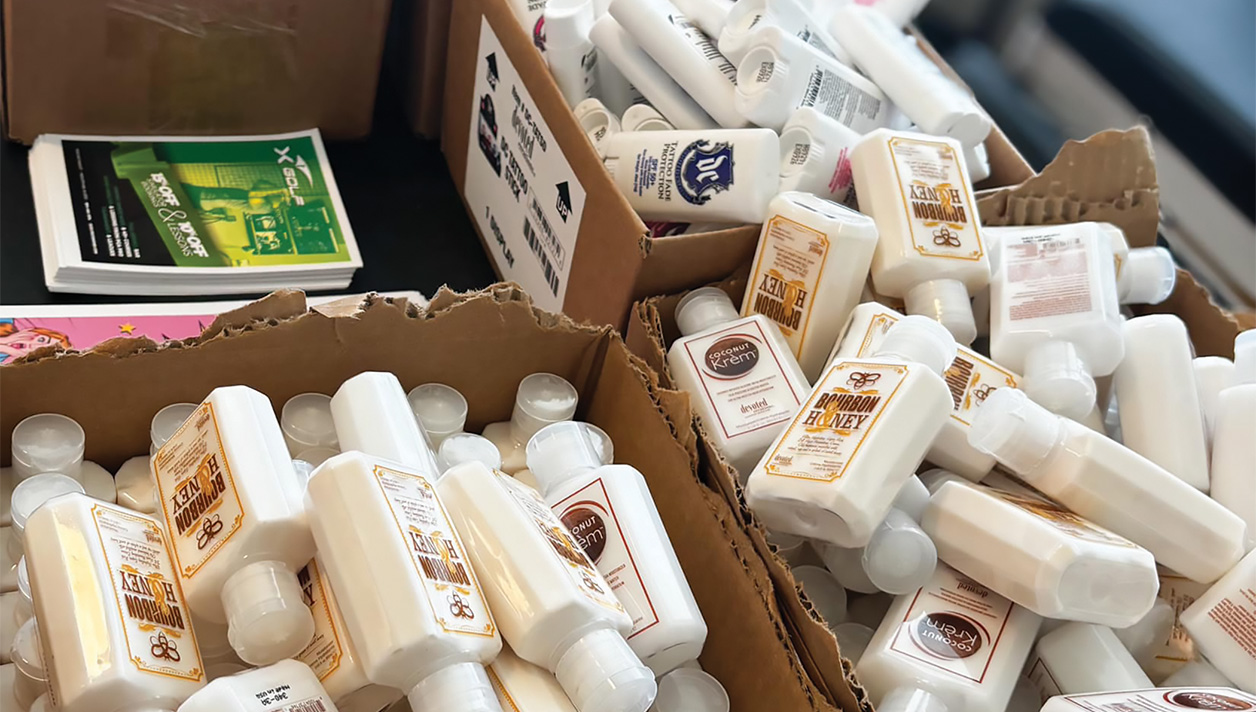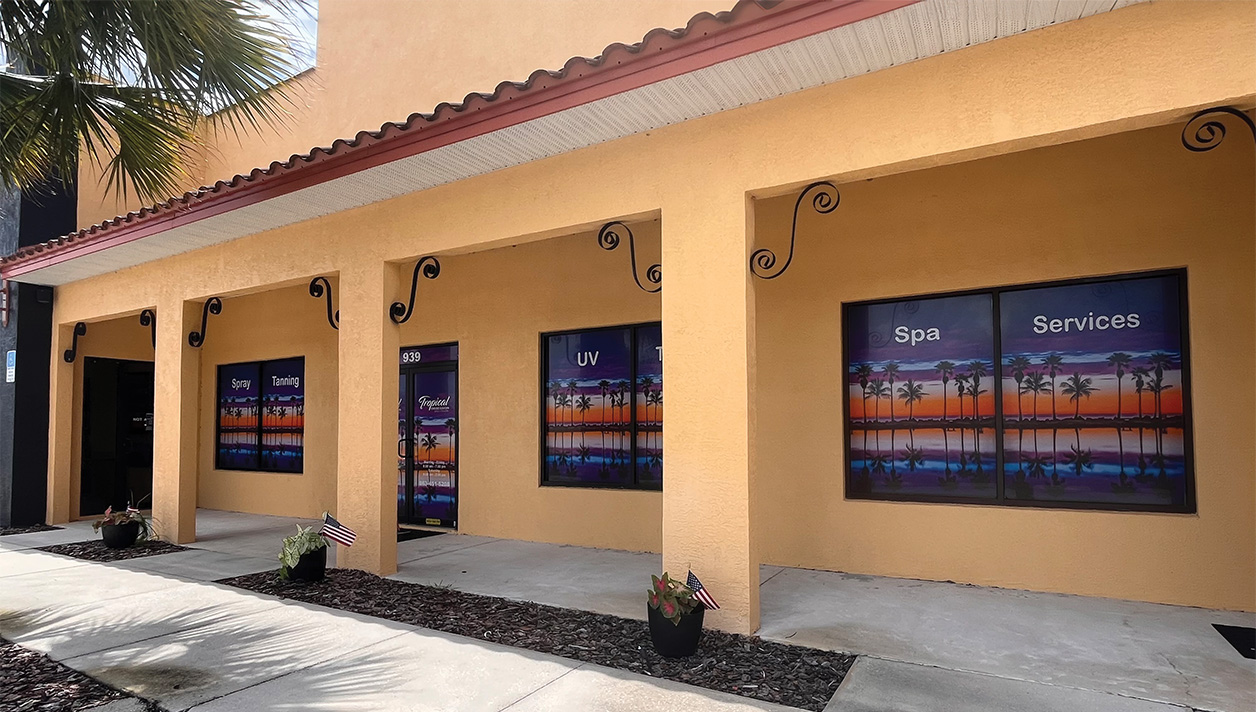Meet Destiny; she’s 19, enjoys dancing, shopping and texting her BFFs, and you just hired her to work at your salon. Her résumé shows a history of hopping from one minimum wage job to another, and the free tanning was probably the only reason she wanted to work with you. Deep down, you know this, yet you still trust her to sell lotions, upgrades and memberships to your shrinking client base. Don’t worry, she’ll get right on that… after she takes her at-work selfie and posts it to social media, that is. With people like Destiny behind salon counters across the nation, what do you think the destiny of the indoor tanning industry will be?
The word “professionalism” needs to be more than an industry buzzword, starting with those who represent indoor tanning to the public – salon operators.
If this industry wants to be taken seriously, its members need to display a strong sense of professionalism. The most obvious place to start is at the tanning salon counter, because the face of the person standing there is the one seen by the general public. The worst thing a salon owner could do is hire someone who won’t take the job seriously, someone like Destiny. On the other hand, owners could hire a friendly, competent and professional staff that’s willing and able to help everyone develop their desired results in a responsible and moderate manner. The good news is that finding, cultivating and maintaining a sense of professionalism amongst your staff is easy, once you know what you’re doing.
The Bare Minimum?
Are you tired of having only the Destinys of the world apply for jobs at your salon? Then try offering wages a little higher than the minimum. As her résumé shows, Destiny and her friends have a history of bouncing from one minimum-wage job to another, so they tend not to value any of these opportunities as career-defining. It doesn’t even matter if you offer commissions on sales because Destiny’s approach to work is to simply punch in and go through the motions to earn her hourly wage. To put it bluntly, paying staff the bare minimum nets bare-minimum results. Since you’ve spent big money to acquire the best location, top-notch equipment and the latest lotions, you want to entrust your venture to a true tanning professional… one who’s worth the extra you should be willing to pay.
To attract a more professional staff from the start, try offering somewhere between $9-$11 an hour and include sales commissions. Yes, Destiny will apply for this job because it means more money and free tanning, but so will many other people. The goal is to attract an older and more mature employee with some retail sales experience. Why is this important? Because operating an indoor tanning salon is a retail sales job. You and your staff are trying to sell lotions, upgrades, eye protection and memberships to everyone who comes into your salon. This, after all, is how you earn a profit, and earning a profit is what being in business is all about!
The Commissions Commission
What does your commission program look like? Do you offer employees one-half of one percent on every product sold divided by their hourly average calculated during every other month of an even-numbered year on nights of a full moon? Even Destiny is smart enough to see through that scam! So are the mature, responsible people with retail sales experience whom you actually want behind your salon’s counter. So what’s the answer? Offer a commission program that rewards staff with cold, hard cash on every sale they make, then sit back and watch them rock their sales numbers.
Simply put, the more straightforward your commission structure is, the more your team will appreciate and understand it. When they have a better grasp of how it works, they’ll be more apt to increase their sales because they’ll love the concept of writing their own paycheck. Most salon owners offer eight to ten percent commission, no gimmicks, no tricks or complicated mathematical formulas. The straight percentage of the cost of each product sold goes right into the pockets of the employees who sell them. To create extra incentive, some salon owners award big cash prizes to their top three salespeople each year. These savvy salon owners know that professional salespeople are always motivated by cold, hard cash and they don’t mind rewarding those who go above and beyond because that way, everyone wins.
Selling EFT memberships is how most big salon chains and franchises continue to build their businesses, and offering commission on each one sold is a good way to increase your customer database. All successful salespeople are motivated by self-interest, so it makes sense to appeal to that. Try offering a one-time, ten percent commission on each EFT membership sold, as well as rewarding managers with a small residual for each successful transaction. Another tip is to empower your sales team to add offers to retain people who are considering cancelling their memberships. The option to place a hold on memberships for a $5 monthly fee will keep more clients in your system, as well.
The Right Questions
The interview is the best way for any salon owner to separate the Destinys from the qualified candidates they actually want to hire. Knowing what you’re doing during the interview process is the key, and this boils down to asking the right questions. If simple, yes-or-no questions are all you ask during the interview process, don’t be surprised if you end up with Destiny running your store. Try asking questions that require in-depth, detailed answers, as these will give you a better idea of the person sitting across the table and whether or not they’ll be a good representative for your business.
 Since tanning salons are a service business, try asking job applicants if they’ve ever had an experience with a customer whose expectations weren’t met. How they answer this question will give you a good idea about the applicant’s customer service skills and how important this is to her. Another thing to ask is what suggestions for improvements they made or would make at their last job, since this will provide you with an indication of their involvement and commitment. It’s also important to look for candidates who seem confident and have warm, inviting personalities, since these people tend to excel in customer service and retail sales environments.
Since tanning salons are a service business, try asking job applicants if they’ve ever had an experience with a customer whose expectations weren’t met. How they answer this question will give you a good idea about the applicant’s customer service skills and how important this is to her. Another thing to ask is what suggestions for improvements they made or would make at their last job, since this will provide you with an indication of their involvement and commitment. It’s also important to look for candidates who seem confident and have warm, inviting personalities, since these people tend to excel in customer service and retail sales environments.
It’s in the Handbook!
Every salon employee, even Destiny, has to go through a mandatory training period. Usually scheduled for one or two weeks, it teaches prospective salon hopefuls how to do things the way you want them done, ensuring uniformity among all staff and between locations. Or does it? One of the biggest problems facing salons today is discrepancy in what procedures are being taught from store to store and from manager to manager. When this happens, nothing is consistent, including the service these confused employees provide your customers.
Putting it in writing is the only way to maintain consistent, professional in-store training, and this is the purpose of the training manual. This document should completely detail each procedure included in your salon’s operation, from cleaning beds to customer service. If you’re sitting down to write one, make sure it paints the complete picture of how you want your salon to run. If you already have a training manual, perhaps it’s time to reread it and, if necessary, add, amend and edit the document until it reflects exactly how your salon should operate and what’s expected of your team.
Additional Training
Ideally, every salon owner should want their staff to be trained and certified by a reputable indoor tanning training program. Making it happen can be difficult though, especially with staff like Destiny who typically don’t stick around long enough to make the investment worthwhile. If you’ve taken heed of our tips on wages, interviews and commission programs, you should have some quality people working behind your counter… the kind who will benefit from some additional tanning salon operator training.
When it comes to salon operator certification and training, tanning pros should look no further than Sun Is Life®. The program was created by Vince Lorraine, ist Magazine Publisher, as a means of raising the level of professionalism in the tanning industry. Easy enough for Destiny to comprehend yet packed with everything today’s salon employee needs to know, these interactive modules address changing the way they inform clients about UV tanning, promoting responsibility and moderation and exhibiting a professional image. Sun Is Life’s online salon operator training program consists of 25 user-friendly modules and offers a Guest Experience Medallion (GEM) certificate upon completion, and the course satisfies state tanning facility requirements.
Get Professional!
Back in the good ol’ days, having a heartbeat, reliable transportation and the ability to say, “Bed No. 3 is ready” was all it took to run a tanning salon. Of course, most salon owners in those days didn’t have to worry about competitors on every block, the anti-tanning media hype and a Federal “Tan Tax.” Considering how much has changed, those wishing to have a future in indoor tanning need to raise their level of professionalism, and it starts with who you choose to put behind your salon’s counter. In other words, as a salon owner, you’re in charge of your destiny, so it’s best to make it a professional one!




























